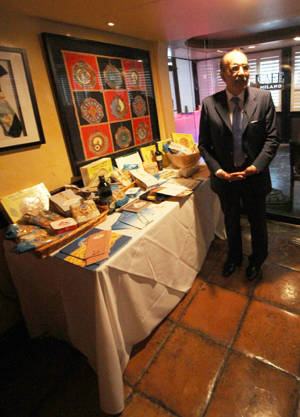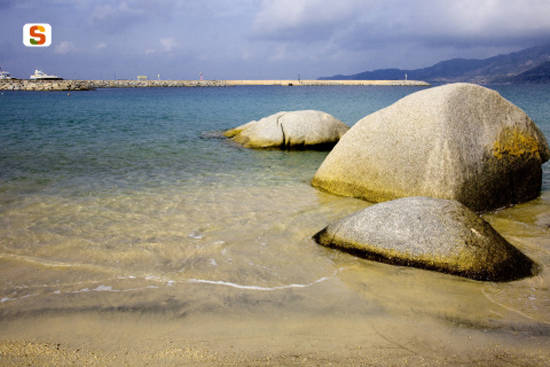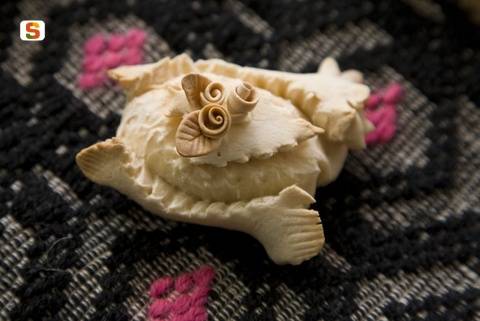Sardinia. A Happy Island to Discover from Mountains to Sea
Commissioner, how is the first Fancy Food Show in Washington going?
I was pleasantly surprised by the turn out with respect to other shows. I found that a large number of attendees were driven by special attention to and careful research on the products presented.
What has Sardinia brought this year?
Ten companies as compared with 18 companies that we brought to San Francisco. Of course this decline is an indication of the current crisis that still persists despite administrative support and cutting costs. These companies have high yearly sales figures and it affects small artisanal producers offering niche products.
I noticed many more young people in your booths. Are we are
witnessing a generational shift? How has this affected the industry?
They are mostly the children of the companies’ founders since many of these businesses were started in the 1950s and so they have a long history. These young people, with a broader cultural education than their parents, bring an added value to these companies. The generation gap has led to the transformation of commercial culture. We have moved from commercial marketing to product marketing in which the producers make sure, first and foremost, to have an actual market on which to sell their products. In this way, every product has a value relative to the sales counter which will introduce it to the market.
Would you say that Sardinia is getting more well-known in the U.S. thanks to several initiatives over the past few years?
Yes, Sardinia is steadily gaining importance in the United States. Previously this region was generally misunderstood. Sometimes even certain locations within Sardinia were presented as images of other tourist destinations. Today, however, increased attention from the administration has made it possible to create a true “brand Sardinia.” The region’s government has directly overseen the process of promotion.
I manage the agro-food industry, my colleague manages the tourism industry, and we often collaborate. It’s a way of lobbying and promotion that’s more Anglo-Saxon than Mediterranean. We are trying to create images, films, and tag lines that can capture the consumer’s imagination in a subliminal way. The agro-food industry should become a paradise that can only produce exceptional fruit. And so the image of the landscape is then transferred onto the food product itself, as the consumer inevitably associates the quality of the product with the beauty and richness of the land that produces it. One believes less in the “bounty of a product” if there isn’t a connection to and a recognition of the bounty of the place as well. The integrity of the environment becomes essential because no one can expect to find high quality products from a poor environment that’s not protected, not valued, and without history.
One region stands out: Tuscany. For years it is has been forefront in American consumer’s imagination.
Tuscany has made agriculture its heritage and its economy. The flavors of Siena and Chianti are clear examples of this, and in America whoever buys this wine naturally imagines the Tuscan hills. I would like for Sardinia to learn how to take advantage of its landscapes just as successfully: this region far surpasses places like the Caribbean or Florida in terms of its clear water, brilliant colors, reefs, coral beaches, and in addition to its mountains and its multi-faceted ancient culture.
And so culture and quality to promote the products of Sardinia?
Yes, quality based on the essential, basic components – prime materials that that only our island can produce specifically because of its morphology and its unique climate. It benefits from the Mediterranean as well as from a microclimate that is temperate all year round.
Throughout the centuries and over millennia a number of special, native products were born such as wine, wheat (which allows you to bake bread in a particular way), and millennial olive groves that provide excellent oil. And to that add meat and the production of cheeses and dairy products. Ours is a happy island that we continue to appreciate and value, and we will make it even more well-known through food and wine tourism which is perfectly suited to an island as special as Sardinia.







































i-Italy
Facebook
Google+
This work may not be reproduced, in whole or in part, without prior written permission.
Questo lavoro non può essere riprodotto, in tutto o in parte, senza permesso scritto.